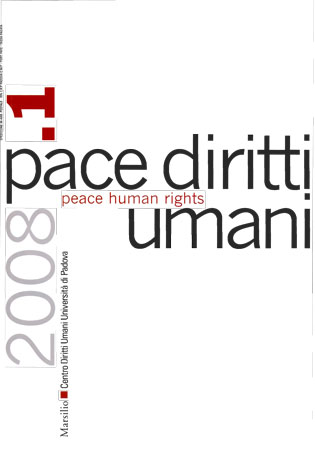Raccolte

Nozioni e contesti del crimine internazionale di genocidio
- Contenuto in
- Pace diritti umani - Peace Human Rights, 1/2008
- Tipologia pubblicazione
- Articolo / Saggio
- Pagine
- 31-56
- Lingua
- IT
Notions and Contexts of the International Crime of Genocide
Paolo De Stefani
The paper explores the notion of the crime of genocide under two profiles: the psychological requirement of special intent (dolus specialis) and the difference between genocide and crimes against humanity from the perspective of the material element. The assumption is that the legal construction of the norms on genocide and their judicial application should take into account the specific factual background of the crime. It is argued that in considering whether a genocide has occurred in a given situation, or in assessing the forms of participation to the crime, more emphasis should be put on the role of the leaders who have conceived the mass crime and created the environment conducive to the eruption of violence. From this perspective, genocide can be seen as a special kind of crime against humanity, characterised by a deeper psychological involvement of perpetrators. In particular it is argued that the existence of a structured policy of targeting human groups (an «attack»), although not expressly mentioned in the genocide’s legal definition, should be seen as a necessary element of the crime. The emphasis on leaders’ role recalls the twofold responsibility of States vis-à-vis the international crime of genocide, according to the 1948 Convention: the duty not to commit acts of genocide and the obligation to prevent it. The recent doctrine on the «responsbility to protect», which the ICJ has endorsed with the 2007 ruling in the Bosnia-Serbia case, is evidence of a renovated attention to the genocidal implications of some State policies and of the urgent need of setting up mass crimes prevention mechanisms.

